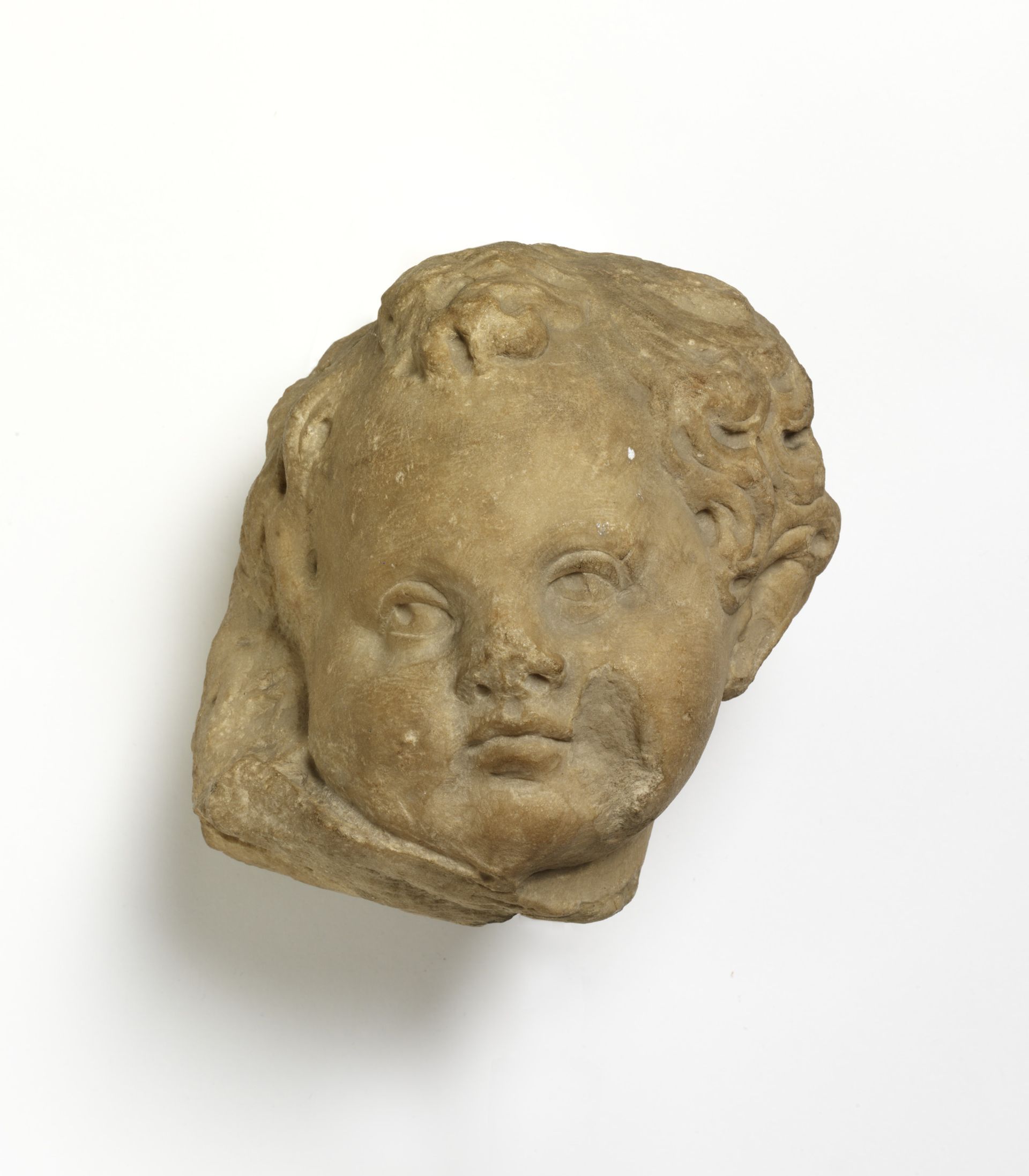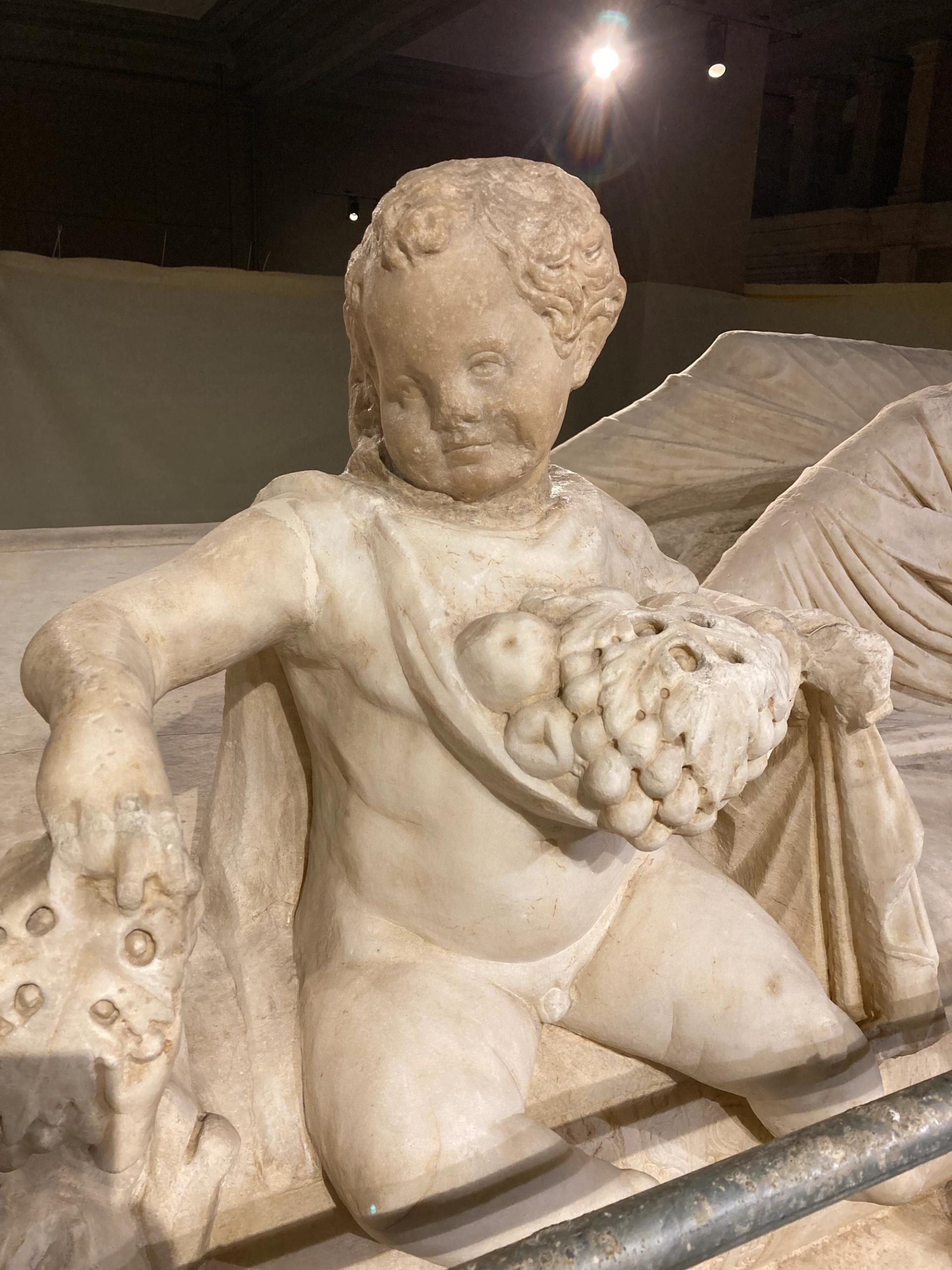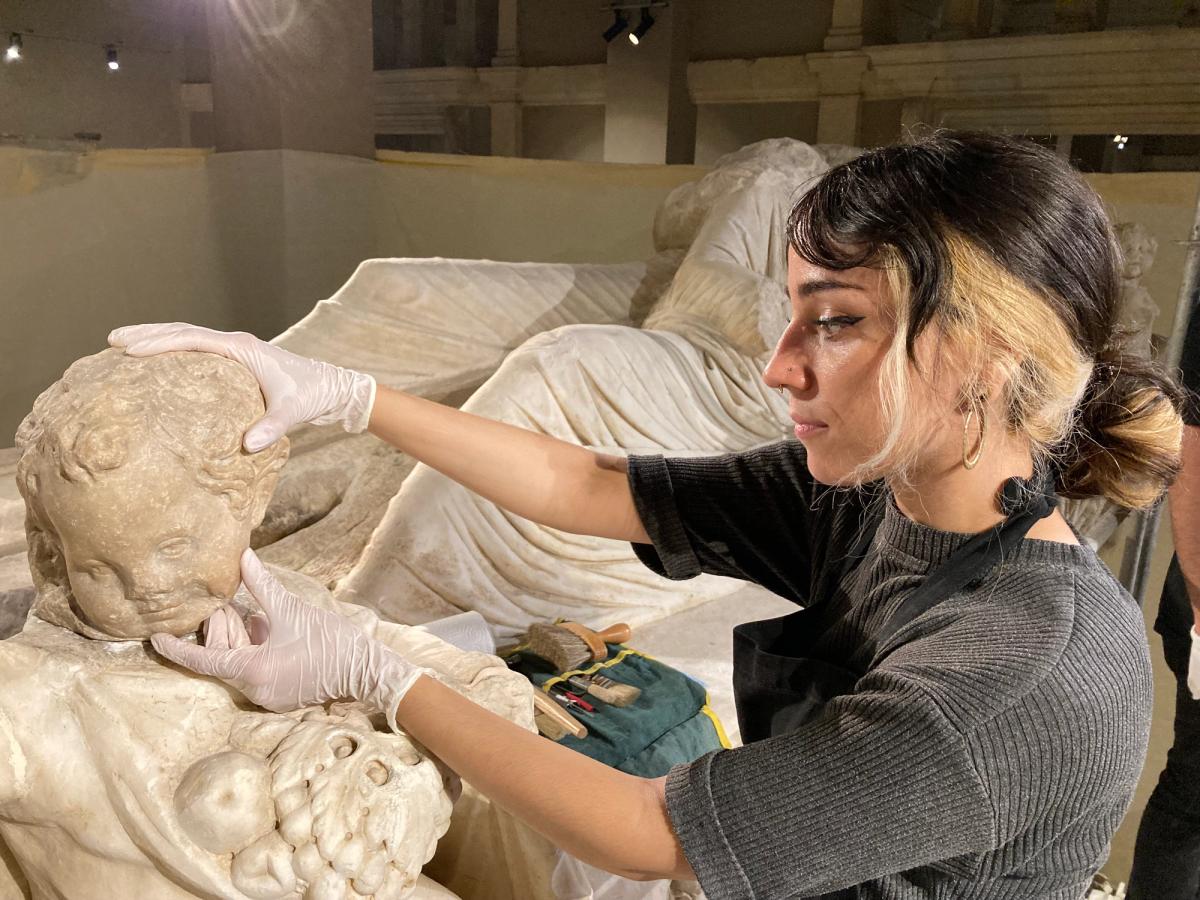London’s Victoria and Albert Museum (V&A) has announced the return of a marble head of the Greek god Eros to Turkey. It has now been reattached to an important 3rd-century AD sarcophagus at the Istanbul Archaeological Museum. This should resolve a restitution issue that has been discussed for nearly 90 years.
In 1882, Charles Wilson, the British military consul general in Anatolia, discovered a highly ornate Roman sarcophagus at Sidamaria, in Karaman province, central Turkey. It turned out to be one of the largest and finest from the ancient world.
Wilson hoped to send the sarcophagus to the UK, but in the meantime he reburied it. However, he took the life-size head of a child, representing Eros (the Greek god of love), which seems to have become detached from its body in one of the scenes on the sarcophagus. Wilson never managed to ship the buried sarcophagus, which was rediscovered in 1898 and then brought to Istanbul.

The carved marble head of Eros (3rd century AD), excavated in Turkey in 1882 © Victoria and Albert Museum, London
In 1883 Wilson had loaned the head of Eros to the V&A (then known as the South Kensington Museum), writing that “I am trying to secure the [whole] sarcophagus for England and should wish the head eventually to go to whoever secures the sarcophagus.” His daughter converted the loan into a gift in 1933.
A year later the V&A considered returning the head to Turkey, in exchange for a Byzantine marble sculpture. But the V&A's director at the time, Eric Maclagan, admitted that this might “raise the difficulty of possible repercussions, particularly with regard to the Elgin Marbles [at the British Museum], but I think we could justify ourselves by pointing out that this is a question of a single head missing from a large monument, of much more value if replaced than if exhibited by itself”.
Although the UK government agreed in 1934 to allow the V&A to return the head, in the end the museum just provided a plaster cast. Since at least the late 20th century the original head has been in storage in London.

The head reattached to its sarcophagus at the Istanbul Archaeological Museum © Victoria and Albert Museum, London
In 2005, when The Art Newspaper reported that Turkey’s government was claiming the head, the V&A's curator Paul Williamson told us that his museum was “willing to send the head back to Turkey on long-term loan, but agreement has not yet been reached on the conditions”. Negotiations were once again renewed in 2010.
Twelve years later success has been achieved. Although the V&A and Turkey’s ministry of culture and tourism describe the arrangement as “a cultural partnership”, it is effectively a loan. The initial period is for six years, which is likely to be periodically renewed. With Turkey’s signature on the loan arrangement, it now acknowledges the V&A’s legal ownership.
Some conservation work was done on the head of Eros at the V&A this spring and an old metal dowel was removed. The head was then flown to Istanbul, where a joint team of conservators attached a stainless-steel dowel. A reversible adhesive was applied to the neck of the head and gaps along the neck joint were filed with a fixture of marble powder and a reversible resin. The marble head was also carefully cleaned to ensure that its surface matches more closely the rest of the sarcophagus.
The Sidamara sarcophagus is on display again as one of the highlights the Istanbul Archaeology Museum—with the god of love having once again regained his head.


